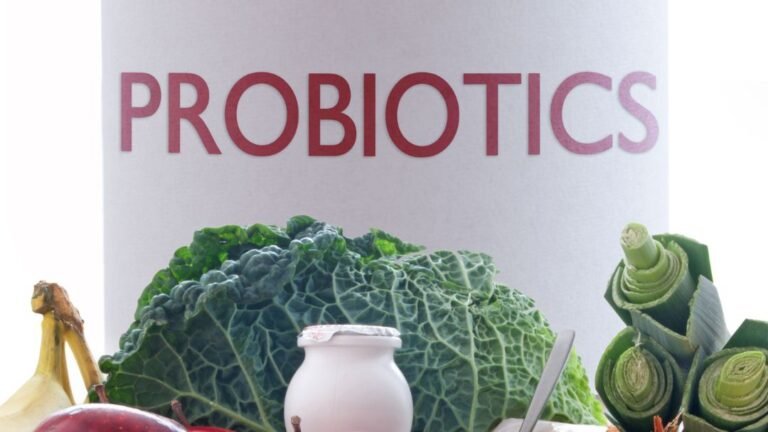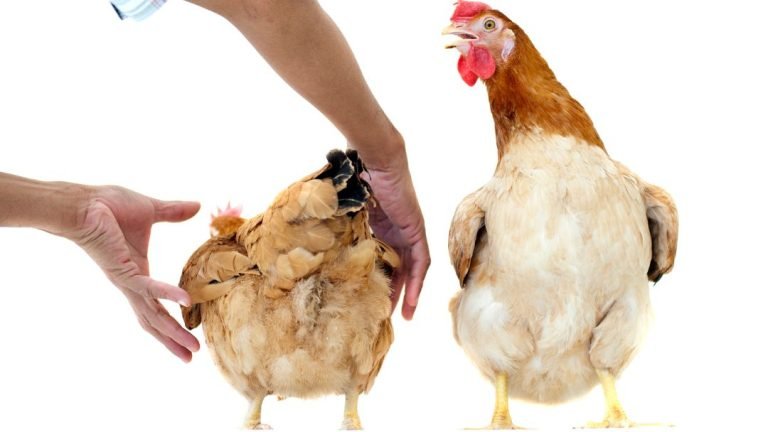Vitamin B12 is essential for chickens’ health and vital for their overall well-being. It plays a crucial role in several important bodily functions, including metabolism, nerve function, and the production of red blood cells.
Lack of vitamin B12 can result in various health issues, such as poor growth, weakened immune system, and reduced egg production. Therefore, it is crucial to ensure that chickens receive an adequate amount of vitamin B12 through their diet. We will explore the importance of vitamin B12 for chickens, its sources, and how to incorporate it into their daily feed to ensure their optimal health and productivity.
So, keep reading to learn more about this essential nutrient for your poultry flock.
Importance Of Vitamin B12 For Chicken Health
Vitamin B12: An Essential Nutrient For Chickens
Vitamin B12, also known as cobalamin, plays a crucial role in supporting the overall health and well-being of chickens. As an essential nutrient, it contributes to various bodily functions and processes. Ensuring that your chickens have an adequate supply of vitamin B12 is vital for their optimal growth, development, and immune function.
The Role Of Vitamin B12 In Supporting Overall Health And Well-being
Vitamin B12 is involved in numerous physiological processes that are vital for the overall health and well-being of chickens. Here are some key roles that vitamin B12 plays:
- Energy metabolism: Vitamin B12 aids in the conversion of food into energy by playing a vital role in carbohydrate, protein, and fat metabolism. It helps ensure that the chickens’ bodies can efficiently utilize the nutrients they consume for energy production.
- Nervous system function: The proper functioning of the nervous system is essential for chickens’ coordination, movement, and overall health. Vitamin B12 works in tandem with other B vitamins to support healthy nerve function and maintain a well-functioning nervous system.
- Red blood cell production: Vitamin B12 is crucial for the synthesis of red blood cells. These cells transport oxygen to the various organs and tissues in a chicken’s body. Adequate levels of vitamin B12 help prevent anemia and ensure that chickens have enough oxygen circulating throughout their bodies.
- Immune system support: A robust immune system is crucial for chickens to ward off diseases and infections. Vitamin B12 plays a vital role in supporting immune function by promoting the production of antibodies and enhancing the activities of immune cells.
Why Chickens May Be Deficient In Vitamin B12
Chickens may experience a deficiency in vitamin B12 due to several factors. Some of the common reasons include:
- Inadequate diet: Chickens that are not provided with a well-balanced diet may lack sufficient vitamin B12. This nutrient is predominantly found in animal-based sources such as insects, worms, and shellfish. Therefore, chickens consuming primarily plant-based diets may be at a higher risk of vitamin B12 deficiency.
- Poor absorption: Certain conditions or diseases, such as chronic inflammation or intestinal disorders, can impair the absorption of vitamin B12 in chickens’ digestive systems. This can lead to reduced levels of vitamin B12 in their bodies.
Ensuring that your chickens have adequate vitamin B12 levels is crucial for their health and well-being. By providing a balanced diet and addressing any underlying absorption issues, you can help prevent deficiencies and promote optimal chicken health.
Signs Of Vitamin B12 Deficiency In Chickens
Recognizing The Symptoms Of Vitamin B12 Deficiency In Chickens
Chickens, just like humans, require a sufficient supply of essential nutrients for optimal health and productivity. Vitamin B12 is one such nutrient that plays a crucial role in various bodily functions of chickens, including the production of red blood cells, nerve function, and DNA synthesis. However, when chickens lack adequate vitamin B12 in their diet, they can experience several signs of deficiency.Fatty Liver Syndrome
One of the prominent signs of vitamin B12 deficiency in chickens is the development of fatty liver syndrome. This condition occurs when fat accumulates in the liver, impairing its function and leading to a range of health issues. In chickens, fatty liver syndrome can manifest as reduced appetite, weight loss, and a visibly enlarged liver upon examination.Poor Growth and Feather Quality
Another telltale sign of vitamin B12 deficiency in chickens is poor growth and feather quality. When chickens lack this essential vitamin, their growth can be stunted, resulting in smaller body size compared to healthy birds. In addition, the feathers of vitamin B12-deficient chickens may appear dull, brittle, or even exhibit abnormal feather patterns.Anemia and Pale Combs
Vitamin B12 deficiency can also lead to anemia in chickens, characterized by a low red blood cell count and reduced hemoglobin levels. Chickens suffering from anemia may show clinical signs such as weakness, lethargy, pale combs, and pale or yellowish mucous membranes. These symptoms are indicative of the chickens’ inadequate capacity to transport oxygen efficiently throughout their bodies.Effects Of Vitamin B12 Deficiency On Chicken Health And Productivity
Vitamin B12 deficiency can have detrimental effects on both the health and productivity of chickens. Without sufficient vitamin B12, chickens may experience a decline in egg production, as the nutrient plays a vital role in the development of healthy eggs. Additionally, vitamin B12 deficiency may impair the chickens’ immune system, making them more susceptible to infections and diseases.Reduced Fertility and Hatchability
Chickens with insufficient vitamin B12 intake may also suffer from reduced fertility and hatchability. Vitamin B12 is crucial for proper reproductive health in chickens, including the maturation of eggs, sperm production, and successful fertilization. When vitamin B12 levels are inadequate, chickens may exhibit lowered fertility rates, leading to decreased hatchability and potential losses in the poultry breeding process.Lowered Feed Conversion Efficiency
Furthermore, vitamin B12 deficiency can negatively impact the overall feed conversion efficiency in chickens. Feed conversion efficiency is a critical factor for poultry farmers, as it directly affects production costs. Chickens lacking in vitamin B12 may consume more feed to meet their nutrient requirements, resulting in increased expenses and reduced profitability for poultry farmers.How To Diagnose A Vitamin B12 Deficiency In Your Flock
Diagnosing vitamin B12 deficiency in chickens requires a comprehensive approach that involves observation, examination, and laboratory testing. By being vigilant and proactive, you can ensure the early detection and proper management of vitamin B12 deficiency in your flock.Physical Examination
Performing a physical examination of your chickens can provide essential clues about their overall health and potential vitamin B12 deficiency. Keep an eye out for symptoms such as poor feather quality, pale combs, weight loss, reduced appetite, and lethargy. These signs may prompt further investigation into vitamin B12 levels.Laboratory Testing
To confirm the diagnosis of a vitamin B12 deficiency, laboratory testing is vital. Blood tests can be conducted to measure the levels of vitamin B12 in the chickens’ bloodstream. Consulting a veterinarian or a poultry specialist is recommended to ensure accurate interpretation of the test results and to develop an appropriate treatment plan for your flock.In conclusion, recognizing the signs of vitamin B12 deficiency in chickens is crucial for maintaining their health and productivity. By closely monitoring their growth, reproductive performance, and overall well-being, along with proper diagnostic measures, you can ensure your flock receives the necessary nutrition to thrive.Sources Of Vitamin B12 For Chickens
Natural Sources Of Vitamin B12 In A Chicken’s Diet
Vitamin B12 is an essential nutrient for the overall health and well-being of chickens. It plays a crucial role in the maintenance of their nervous system, the formation of red blood cells, and the metabolism of proteins. While chickens are able to synthesize their own B vitamins within their gut, including B12, their requirements for this particular vitamin may not be sufficiently met through endogenous synthesis alone.
Fortunately, there are several natural sources of vitamin B12 that can be incorporated into a chicken’s diet to ensure optimal health and performance. These sources include:
- Insects: Chickens love to forage and peck at insects, and it’s a good thing too! Insects such as mealworms and earthworms are excellent sources of B12.
- Grass and other greens: Fresh grass and green leafy vegetables like spinach and kale also contain significant amounts of B12.
- Animal byproducts: One of the richest sources of vitamin B12 for chickens is animal byproducts. Including fish meal or dried fish in their diet can provide ample amounts of this vital nutrient.
Supplementing Chicken Feed With Vitamin B12
While natural sources of vitamin B12 can go a long way in meeting a chicken’s dietary requirements, supplementing their regular feed with additional B12 may be necessary in certain situations. This is particularly important for chickens raised in confinement or those fed a primarily vegetarian diet.
Supplementing chicken feed with vitamin B12 can be done in a few different ways. One option is to purchase feed that is specially formulated to contain added B12. These feeds are often labeled as “fortified” or “complete” and can be easily found at your local feed store or online.
Another option is to add a liquid or powdered B12 supplement directly to the chicken’s water or feed. This allows for more precise dosing and can be a cost-effective alternative to buying specialty feed.
The Pros And Cons Of Different Vitamin B12 Supplements For Chickens
There are several types of vitamin B12 supplements available for chickens, each with its own pros and cons. It’s important to consider these factors when determining the best option for your flock.
| Supplement Type | Pros | Cons |
|---|---|---|
| Liquid supplements | Easy to administer and mix into water or feed. | May be more expensive compared to other options. |
| Powdered supplements | Can be easily measured and mixed into feed. | May require additional steps to ensure thorough mixing. |
| Injectable supplements | Provides precise dosing. | Requires individual administration and can be stressful for the chickens. |
Overall, regardless of the type of supplement chosen, it’s important to follow the recommended dosage instructions provided by the manufacturer and consult with a veterinarian if necessary. Monitoring the flock’s overall health and performance will help determine if the chosen supplement is meeting their B12 needs effectively.
Best Practices For Boosting Vitamin B12 In Chickens
When it comes to keeping your chickens healthy and thriving, ensuring they have an adequate intake of vitamin B12 is crucial. Vitamin B12 plays a vital role in their overall well-being, aiding in energy production, proper nervous system function, and maintaining healthy feathers and egg production. In this article, we will delve into the best practices for boosting vitamin B12 in chickens, covering everything from creating a balanced diet to ensuring proper absorption in their digestive systems.
Creating A Balanced Diet That Includes Adequate Vitamin B12
One of the key factors in boosting vitamin B12 levels in chickens is providing them with a balanced diet that meets their nutritional needs. Incorporating vitamin B12-rich foods into their feed is essential, and there are various options you can consider:
Using a table to present food options with their B12 content| Food Source | Vitamin B12 Content (per 100g) |
|---|---|
| Red Meat | 2.8 mcg |
| Eggs | 1.1 mcg |
| Fish | 0.9 mcg |
| Yogurt | 0.9 mcg |
Adding small amounts of these foods to their diet can provide a natural source of vitamin B12. Additionally, it’s important to ensure they have access to fresh greens and fruits, as these add essential nutrients to their diet, facilitating overall health and encouraging optimal vitamin B12 absorption.
Ensuring Proper Absorption Of Vitamin B12 In Chickens’ Digestive Systems
Even if you provide vitamin B12-rich foods, it’s crucial to ensure proper absorption in your chickens’ digestive systems. There are a few strategies you can follow:
- Ensure their feeds are properly balanced and contain the right combination of nutrients to support vitamin B12 absorption.
- Consider adding prebiotics and probiotics to their diet, as these can enhance gut health and improve nutrient absorption.
- Regularly check for signs of digestive issues or nutrient deficiencies, as these can hinder vitamin B12 absorption. Consulting a veterinarian is recommended for any potential health concerns.
Strategies For Incorporating Vitamin B12 Into Your Chicken’s Daily Routine
Incorporating vitamin B12 into your chicken’s daily routine is essential for optimizing their health. Here are some effective strategies:
- Include vitamin B12-rich foods as treats, such as small pieces of cooked meat or scrambled eggs.
- Supplement their water with vitamin B12 drops, following the recommended dosage.
- Consider adding powdered vitamin B12 supplements to their feed, ensuring you follow the instructions provided.
- Regularly monitor their health and behavior to ensure they are thriving and adjust their diet accordingly.
By following these best practices, you can create a well-rounded approach to boosting vitamin B12 in your chickens. Remember, maintaining a balanced diet and ensuring proper absorption are key to their overall health and well-being.
Additional Tips For Maintaining Chicken Health
Maintaining the health of your chickens goes beyond providing them with a balanced diet. It also involves creating a clean and stress-free environment for your flock, scheduling regular check-ups with a veterinarian, and ensuring they receive the necessary vitamins and minerals. By implementing these additional tips, you can help promote the well-being and vitality of your feathered friends.
Providing A Clean And Stress-free Environment For Your Flock
Chickens thrive in a clean and stress-free environment. To ensure this, follow these guidelines:
- Keep their coop clean: Regularly clean and disinfect their living space to minimize the risk of disease and parasites.
- Provide ample space: Allow your chickens to move around freely by providing enough space in their coop and run. This helps reduce stress and prevent aggressive behavior.
- Offer comfortable bedding: Choose the right bedding material, such as straw or wood shavings, which provides insulation and absorbs moisture.
- Ensure proper ventilation: Good air circulation prevents the buildup of harmful gases and regulates temperature, promoting a healthier environment.
- Minimize noise and disturbances: Loud noises and frequent disturbances can stress chickens, so keep their surroundings as calm and quiet as possible.
Regular Check-ups And Consultations With A Veterinarian
Your chickens’ health can greatly benefit from regular check-ups and consultations with a veterinarian. These visits allow for early detection and prevention of potential health issues. Here’s what you need to do:
- Schedule routine check-ups: Regularly schedule appointments with a poultry veterinarian for thorough inspections and vaccinations.
- Observe behavior and appearance: Keep an eye on your chickens’ behavior, appetite, and appearance. Any sudden changes may indicate a health problem that needs immediate attention.
- Consult the veterinarian: If you notice any concerning signs or symptoms, consult your veterinarian promptly for advice and guidance.
Other Vitamins And Minerals That Contribute To Chicken Health
In addition to vitamin B12, several other vitamins and minerals play vital roles in maintaining chicken health. Consider incorporating the following into their diet:
| Vitamin/Mineral | Role | Food Sources |
|---|---|---|
| Vitamin A | Supports vision, immune system, and egg production | Green leafy vegetables, carrots, eggs |
| Vitamin D | Aids in calcium absorption for strong bones and eggshells | Sunlight exposure, fortified feeds |
| Calcium | Essential for bone health and eggshell formation | Crushed oyster shells, limestone grit, eggshells |
| Zinc | Supports immunity and feather growth | Grains, legumes, shellfish |
| Iron | Essential for blood health and oxygen transport | Meat, fish, green vegetables |
Remember to consult with a poultry nutritionist or veterinarian to determine the appropriate dosage and sources of these vitamins and minerals for your flock.
Conclusion
Incorporating vitamin B12 into the diet of chickens is a crucial element in ensuring their overall health and well-being. With its numerous benefits, such as improved energy production, enhanced immune system function, and proper nerve and brain development, vitamin B12 helps chickens thrive and reach their full potential.
By providing this essential nutrient, poultry owners can promote optimal growth and productivity in their flocks, ultimately leading to a more sustainable and profitable venture.



